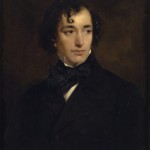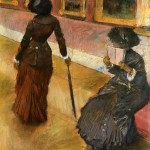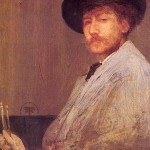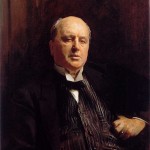It was not long before many men of high birth clustered about him and paid him their attentions. Most of them were plainly smitten with his brilliant youthful beauty and fondly courted him. But it was the love which Socrates had for him that bore strong testimony to the boy’s native excellence and good parts. These Socrates saw radiantly manifest in his outward person, and, fearful of the influence upon him of wealth and rank and the throng of citizens, foreigners and allies who sought to preëmpt his affections by flattery and favour, he was fain to protect him, and not suffer such a fair flowering plant to cast its native fruit to perdition. For there is no man whom Fortune so envelops and compasses about with the so‑called good things of life that he cannot be reached by the bold and caustic reasonings of philosophy, and pierced to the heart.
As regards the beauty of Alcibiades, it is perhaps unnecessary to say aught, except that it flowered out with each successive season of his bodily growth, and made him, alike in boyhood, youth and manhood, lovely and pleasant. The saying of Euripides,6 that “beauty’s autumn, too, is beautiful,” is not always true. But it was certainly the case with Alcibiades, as with few besides, because of his excellent natural parts.
But all this statecraft and eloquence and lofty purpose and cleverness was attended with great luxuriousness of life, with wanton drunkenness p41and lewdness, with effeminacy in dress, — he would trail long purple robes through the market place, — and with prodigal expenditures. . . He had a golden shield made for himself, bearing no ancestral device, but an Eros armed with a thunderbolt. The reputable men of the city looked on all these things with loathing and indignation, and feared his contemptuous and lawless spirit. They thought such conduct as his tyrant-like and monstrous. How the common folk felt towards him has been well set forth by Aristophanes in these words:—
“It yearns for him, and hates him too, but wants him back;”
and again, veiling a yet greater severity in his metaphor:–
“A lion is not to be reared within the state;
But, once you’ve reared him up, consult his every mood.”
And indeed, his voluntary contributions of money, his support of public exhibitions, his unsurpassed munificence towards the city, the glory of his ancestry, the power of his eloquence, the comeliness and vigour of his person, together with his experience and prowess in war, made the Athenians lenient and tolerant towards everything else; they were forever giving the mildest of names to his transgressions, calling them the product of youthful spirits and ambition. Plutarch, “The Life of Alcibiades,” The Parallel Lives.

































































